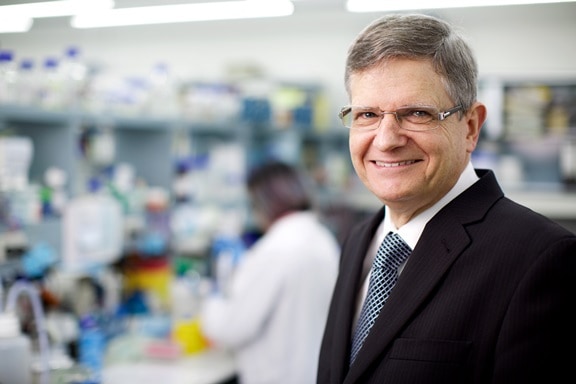
Studying proteins to transform treatment for breast cancer
Published: 10/7/19 11:23 PM

Roger Reddel
For many decades, tests detecting specific proteins in cancers have guided treatment decisions. The best-known example is the estrogen receptor (ER) in breast cancer. If this protein is present, it is likely the cancer can be treated successfully with an anti-estrogen drug that specifically targets this receptor.
Proteins are key molecules in the functioning of all tissues, including cancers. Measuring all proteins in cancers would be a major step towards the goal of making individually tailored treatment decisions. Until very recently, this has not been possible, because the technology for measuring thousands of proteins (the proteome) simultaneously in a clinically-relevant way did not exist.
Recently, a new combination of technologies (referred to as PCT-SWATH-MS) was developed which makes it possible to reliably analyse the proteome of very small cancer samples. A laboratory facility called ProCan has been built at Children’s Medical Research Institute (CMRI) which scales up this technology and makes it possible, for the first time, to study the proteomes of thousands of cancers.
In this project, Professors Roger Reddel and Rosemary Balleine and their colleagues will analyse the proteomes of 2500 samples of breast cancer, for which the outcome of treatment is already known. The massive set of data acquired from this research will be analysed to find patterns in the proteome that predict responses to specific types of treatment. This information will be made widely available to other researchers to facilitate collaboration and accelerate the progress of breast cancer research more generally.